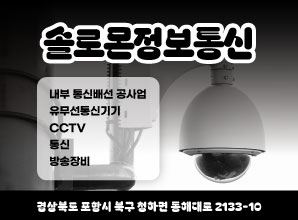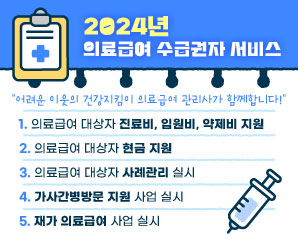자유게시판
7 Easy Tips For Totally Rocking Your Managing Adhd Without Medication
- 작성자 : Delphia
- 작성일 : 24-05-10 00:39
- 조회수 : 4
 ADHD Medications
ADHD MedicationsThere is no cure for ADHD but they can assist in controlling symptoms. But, every person reacts differently to the medications they take and may require a variety of ones before finding the one that best suits them.
Stimulants (also called psychostimulants) improve the brain's ability to produce dopamine and norepinephrine. They also can reduce hyperactivity and impulsivity.
Medicines
The use of medication is a crucial aspect of treating ADHD. They can help with symptoms like impulsivity, hyperactivity and low attention. They can also treat underlying mental health conditions such as depression and anxiety.
The most common types of medication for ADHD are stimulants (also known as psychostimulants) which are consumed as a pill either once or twice a day to improve focus and concentration. These medications can be short-acting (or long-acting) according to the preferences of your doctor and the duration you would like the medication in your system.
Stimulants for ADHD are usually used in conjunction with a treatment plan that incorporates treatment, behavior modification and prescribe medications skill training. These treatments are more effective in treating ADHD than medication alone, and may help to enhance the overall quality of your child's life.
These drugs work by affecting the brain's neurotransmitters, which are chemical substances that help to transmit messages between cells. Dopamine as well as norepinephrine are two examples of these chemicals.
Some children and adults may have side effects when taking ADHD medication, but most aren't severe or lasting. These adverse effects could include jitteriness and moodiness, headaches, fast heart rate, and upset stomach.
Sometimes these effects are the sign of an even more serious medical issue and your doctor may need to do tests using blood or other methods to determine the root cause. Your pediatrician might suggest checking for heart-related conditions that are underlying as ADHD stimulants have been linked with rare instances of heart attack or stroke.
Other medicines that are used to treat ADHD include lisdexamfetamine and dexamfetamine and dexamfetamine, stimulants that can improve concentration and reduce the risk of impulsivity. These are medications for adhd that can be given to adolescents, children and adults suffering from ADHD who have not responded well to methylphenidate or other ADHD stimulants.
Lisdexamfetamine can be taken as a capsule daily. It can be used in conjunction with methylphenidate to create an even more effective medication. It is an SNRI which means that it boosts the levels of norepinephrine within your brain.
This medication isn't designed to create a habit, and it works differently than other ADHD medications. It doesn't cause any side symptoms or cause irritability like other ADHD medication.
Trials of medication
One of the most popular treatments for ADHD is medication. They aim to reduce symptoms of the disorder which include hyperactivity, inattention and the tendency to be impulsive. Moreover, they can also help reduce the risk of psychosocial complications which may be associated with the disorder, such as anxiety and depression.
In the variety of drugs among them, stimulants are most popular. They are mainly central nerve system (CNS), stimulants that treat the brain's adrenergic system, as well as dopamine receptors. They include methylphenidate Hydrochloride, amphetamine sulfate dimesylate and lisdex.
ADHD drugs are effective for short-term treatment. They can provide a therapeutic response in as just seven days or weeks. This is in contrast with other psychiatric medications that generally require long-term treatment.
However, there are still limitations to the effectiveness and safety of the medications that have been commercialized for this condition. It is therefore crucial to conduct post-marketing research studies that examine the long-term safety as well as effectiveness of ADHD medications.
These types of studies are useful in detecting rare adverse events as well as assessing the safety and effectiveness of products on a greater scale that can be achieved through random clinical trials. However post-marketing observational studies aren't as robust as randomized trials when it comes to assessing the pharmacological effects, and do not account for treatment selection bias , or other design issues.
There are more than a dozen medicines available in the United States for ADHD. These include central nervous system stimulants and alpha2 Adrenergic antagonists.
The class of methylphenidate has the most distinct agents in clinical trials, accounting for 80percent of all drugs in this class. Additionally, it has the most pronounced impact on the reduction of ADHD symptoms and is the most frequently prescribed agent for children and adolescents.
Atypical antipsychotics are a different pharmacological class of interest for ADHD treatment. There are a variety of compounds in this group that are relatively new and have been shown to be less addictive than stimulants to the central nervous system.
The variety of non-pharmacological therapies for ADHD has risen dramatically in recent years. These interventions can be used as alternative or complementary therapies or as mind and body interventions like cognitive training and behavioral management. They can be tailored to the needs of individuals' development that can have an impact on the most challenging behavioral symptoms at that point in life.
Monitoring of medications
Whatever the initial treatment strategy for adhd is based on medication, behavioral therapy or dietary intervention It is crucial to monitor the treatment over time to assess how well these treatments are working on a regular basis. For example, the core symptoms of inattention and hyperactivity-impulsivity can reemerge once treatment has stopped, affecting childrenaEUR(tm)s success in school work, meeting their behavioral expectations at school and getting along with peers.
There are many stimulant medicines that can be used to treat ADHD. These include methylphenidate (Ritalin) and lisdexamfetamine (Daxil), atomoxetine (Strattera) Clonidine (Kapvay) and Guanfacine (Intuniv).
Most stimulant medications work within a few days of starting. They can be taken as tablets, liquids or capsules. These medicines have a longer half-life, and can also be taken with food which makes them less abrasive on the stomach.
Your doctor will prescribe a low dose of the medicine and then monitor whether it improves your child's health. You may need to increase or decrease the dosage in the event of side effects or your child grows older.
Some children will be tired or groggy the morning when they take their medication. This is normal and should go away over time. It is possible that your child may suffer from dizziness or headache from taking the medicine. These are not common, but you should contact your doctor if they last longer than two hours or are extremely intense.
Another common side effect is grumpiness or anxiety, particularly during the time the medicine is wearing off. These side effects generally disappear over time. However, your doctor may want you to check your child’s blood pressure and pulse before stopping the medication.
When prescribing stimulant medication your doctor will conduct the medical history of your child and conduct an examination. This will enable your doctor to determine if your child has any medical condition that may affect their ability to absorb stimulant medications.
The QbTest is a clinical trial with adhd medication that has been used at the Child Neuropsychiatric Clinic at Queen Silvia's ChildrenaEUR(tm)s Hospital in Sweden from 2014 to 2020. In the QbTest participants are given a placebo, low or moderate dose, as well as a high dose of a particular medication for 4 to 5 weeks. The primary physician who is responsible for the ongoing medication regimen will receive the results of the study.
Combinations of medicine
The use of medication can reduce the symptoms of adhd, including attention, self-control, and mood. They can also help improve the quality of a person's social and work life.
ADHD is often treated by taking stimulant medications. These medications boost the levels in the brain of norepinephrine as well as dopamine. However, they can trigger various side effects, including an upset stomach and weight loss. They may also raise the heart rate or blood pressure somewhat.
Nonstimulant medications, on contrary are less likely to cause side adverse effects, and tend to be more effective than stimulants in some cases. There are a variety of nonstimulants that are used to treat ADHD such as atomoxetine (Strattera) Guanfacine, guanfacine and Clonidine.
The metabolization of these drugs occurs in the liver by an enzyme known as CYP2D6. Drugs that inhibit this enzyme can slow the metabolism of atomoxetine and lower its effectiveness. Before beginning treatment with Atomoxetine, it is crucial that anyone who is taking these medications consult their physician.
For children, adolescents and adults with ADHD Long-acting stimulants such as amphetamine and methylphenidate are the most commonly prescribed drugs by doctors. These medications can be used throughout the day, prescribe medications which means there is no need to worry about overdosing or rebound symptoms.
While these medications can trigger a wide range of negative effects, they are generally secure and efficient. A few of the more common side effects include weight loss, irritability, and headaches.
Doctors may prescribe medications in addition to counseling and therapy for children or adults suffering from ADHD. These therapies can help develop ways to manage stress and develop strategies to change behavior, NIMH experts say.
A person with ADHD may be able to manage anger by learning ways of communicating and asserting his needs. They may also be able to manage their emotions better with expressive art therapy or play therapy.
Therapy can also be provided to parents and other family members to understand how to help ADHD children and help them manage their symptoms. This can involve learning how to manage anxiety and frustration, and reducing the impact of ADHD on their relationship with their loved one.
네티즌 의견 총 0개







 수정
수정 삭제
삭제 글쓰기
글쓰기







